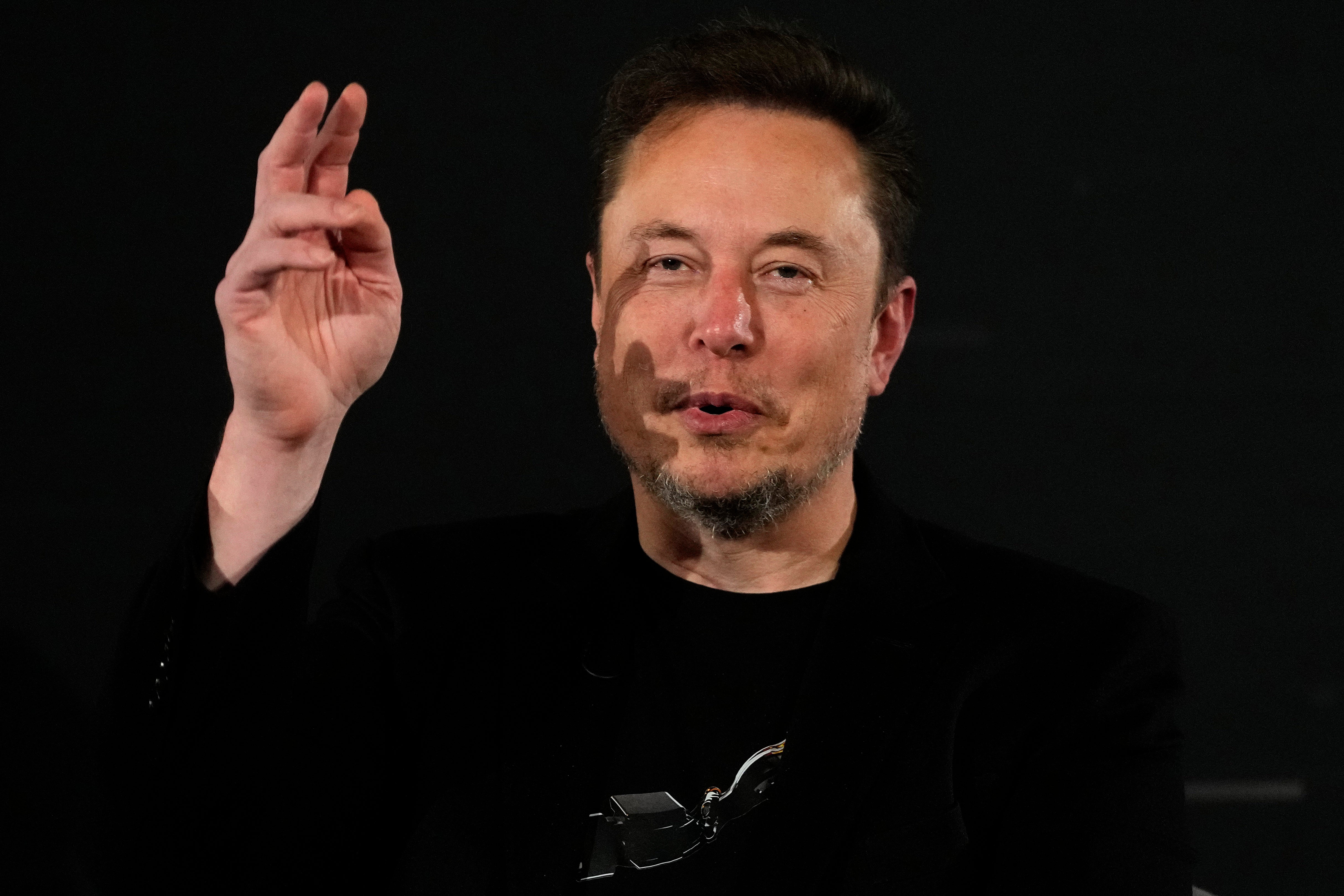Wealth of five richest men doubles as world to have first trillionaire ‘within years’
World’s wealthiest men get richer while poorest get poorer

Your support helps us to tell the story
From reproductive rights to climate change to Big Tech, The Independent is on the ground when the story is developing. Whether it's investigating the financials of Elon Musk's pro-Trump PAC or producing our latest documentary, 'The A Word', which shines a light on the American women fighting for reproductive rights, we know how important it is to parse out the facts from the messaging.
At such a critical moment in US history, we need reporters on the ground. Your donation allows us to keep sending journalists to speak to both sides of the story.
The Independent is trusted by Americans across the entire political spectrum. And unlike many other quality news outlets, we choose not to lock Americans out of our reporting and analysis with paywalls. We believe quality journalism should be available to everyone, paid for by those who can afford it.
Your support makes all the difference.The world’s five richest men have more than doubled their fortunes in the last four years, while the wealth of the poorest has fallen, a new report has revealed.
Oxfam’s research on inequality and global corporate power has found that the fortunes of the top five richest billionaires – Elon Musk, Bernard Arnault and family, Jeff Bezos, Larry Ellison and Warren Buffett, according to Forbes – have shot up by 114 per cent, from £321 billion in March 2020 to £688 billion in November last year.
Meanwhile, the wealth of the poorest 60 per cent, 4.77 billion people, has dropped by 0.2 per cent over the same time period, highlighting a dramatic increase in inequality since the Covid pandemic hit.
As business elites gather for the World Economic Forum in the Swiss resort town of Davos, the charity warned the world will have its first trillionaire within a decade if trends continue, but poverty will not be eradicated for another 229 years.

Its report Inequality Inc. reveals that a billionaire is at the helm of seven out of 10 of the world’s biggest corporations, which are themselves worth £8.1 trillion, equivalent to more than the combined GDPs of all countries in Africa and Latin America. Using Wealth X data, it also finds that the world’s richest 1 per cent own almost half (43 per cent) of all global financial assets.
Meanwhile, the research suggests people worldwide are working harder and longer hours, often for poverty wages in precarious and unsafe jobs.
Across 52 countries, the report shows 800 million workers have lost a combined £1.2 trillion over the last two years, equivalent to nearly a month (25 days) of lost wages for each worker. The most recent Gini index – which measures inequality – found that global income inequality is now comparable with that of South Africa, the country with the highest inequality in the world.
Aleema Shivji, Oxfam’s interim Chief Executive, said: “These extremes cannot be accepted as the new norm, the world can’t afford another decade of division. Extreme poverty in the poorest countries is still higher than it was pre-pandemic, yet a small number of super-rich men are racing to become the world’s first trillionaire within the next ten years.
“This ever-widening gulf between the rich and the rest isn’t accidental, nor is it inevitable. Governments worldwide are making deliberate political choices that enable and encourage this distorted concentration of wealth, while hundreds of millions of people live in poverty. A fairer economy is possible, one that works for us all. What’s needed are concerted policies that deliver fairer taxation and support for everyone, not just the privileged.”
Inequality Inc. found billionaires are £2.6 trillion richer than in 2020, and their wealth has grown three times faster than the rate of inflation, highlighting the supercharged surge in extreme wealth.
Mirroring the fortunes of the super-rich, the report also showed big business is set to smash annual profit records, with 148 of the world’s biggest corporations together raking in £1.4 trillion in total net profits in the year to June 2023, a 52 per cent jump compared to average net profits in 2018-2021.
New Oxfam analysis of World Benchmarking Alliance data on more than 1,600 of the largest corporations worldwide shows that fewer than one in 250 of them are publicly committed to paying workers a living wage and to supporting a living wage in their value chains. The charity said it would take 1,200 years for a woman working in the health and social sector to earn what the average CEO in the biggest 100 Fortune companies earns in a year.
Consequently, Oxfam is calling for governments to introduce progressive wealth taxes to both reduce inequality and raise vital revenue for public investment. It said a wealth tax on British millionaires and billionaires at a rate of between one to two per cent on net wealth above £10 million could generate up to £22 billion each year.
Julia Davies, investor, is a founding member of Patriotic Millionaires UK, a nonpartisan group of British millionaires campaigning for a wealth tax. She said: “Only 4 pence in every tax pound comes from taxes on wealth. It is miniscule, especially when compared to income at 42 pence in the pound. I am fortunate enough to be able to contribute more and want to do so. People argue that millionaires like me can just donate more voluntarily to the Treasury – but this clearly isn’t a solution. Just like income taxes, wealth taxes should be mandatory, not optional.
“Just imagine what £22 billion a year invested in public services and infrastructure could pay for; improving the lives of every one of us who live in the UK and providing our elderly, young and vulnerable with the care and support they need and deserve. Investment in a green economy, improving our care services and giving every child, whatever their background, the chance to succeed.
“It’s time to stop treating taxation of wealth as off the table and get on with using it to invest in building the future the British people deserve.”
Join our commenting forum
Join thought-provoking conversations, follow other Independent readers and see their replies
Comments